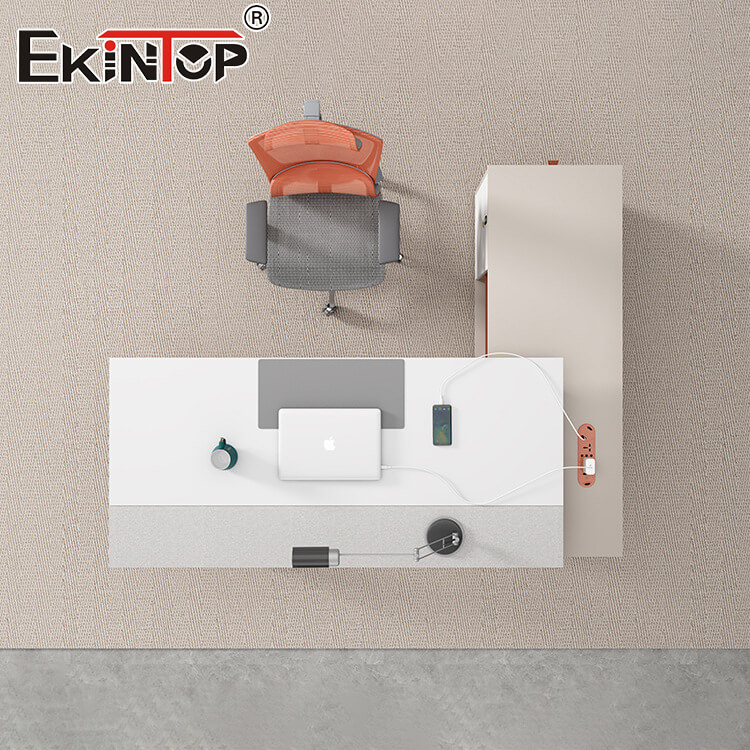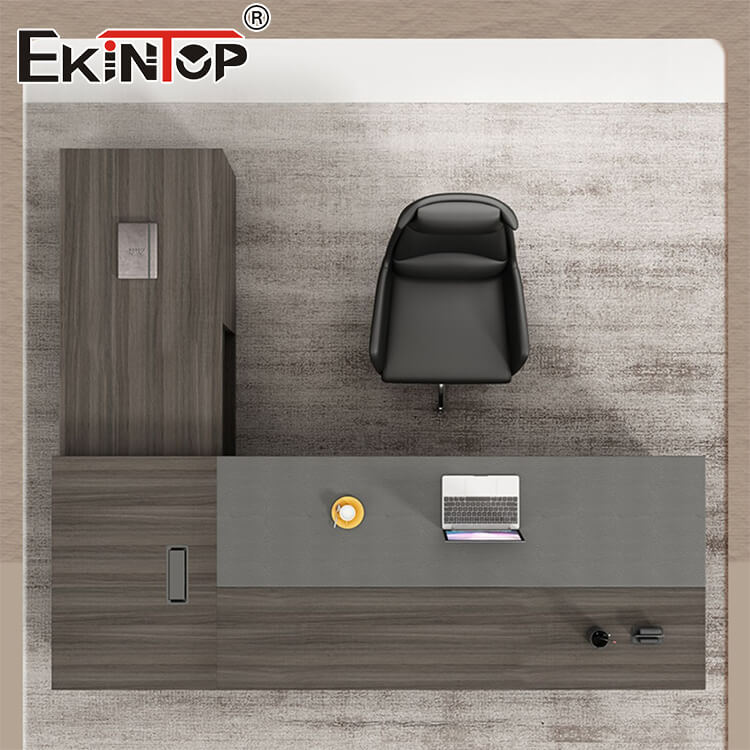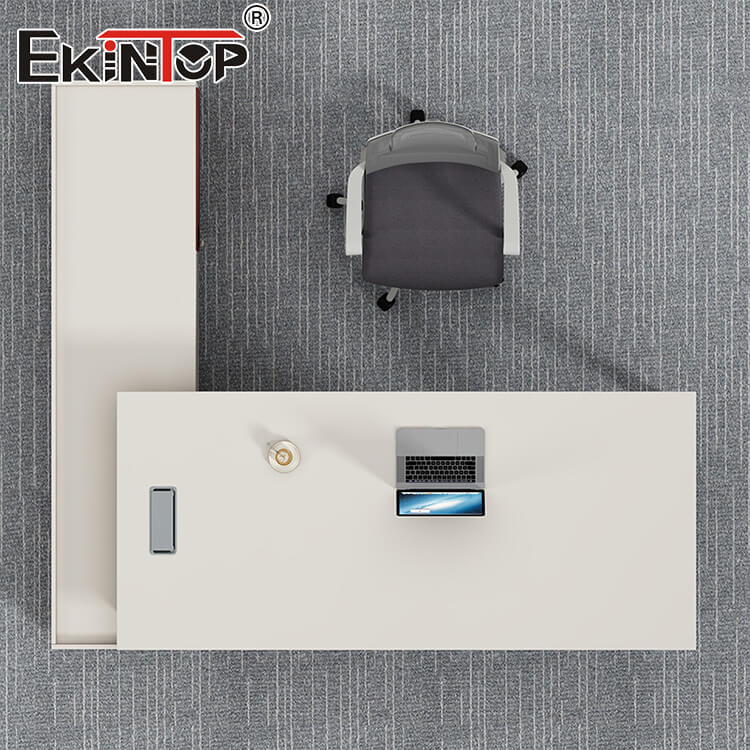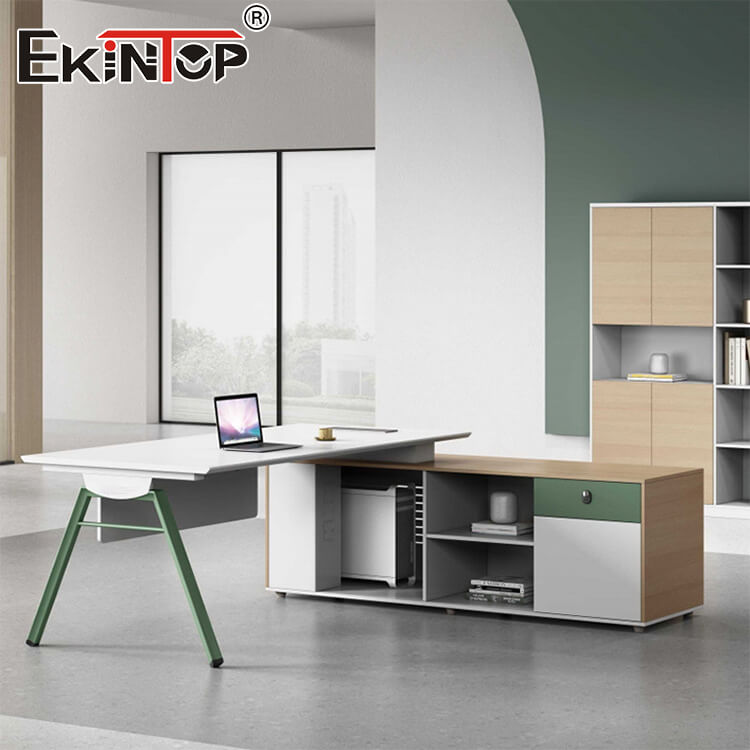
October 15,2025
admin
When choosing an office desk, the material is a crucial factor to consider. Solid wood and wood-based panels are two common materials for office desks, each possessing unique characteristics, advantages, and disadvantages. Understanding these differences helps us make a more informed decision that better suits our needs and budget when purchasing an office desk.
Advantages
Natural Texture and Aesthetics: A solid wood office desk has inherent natural grain and color. Each piece of wood contains a unique charm, such as the bold texture of oak, the fine grain of walnut, and the warm color of cherry wood. These natural elements add a simple, elegant, and high-end atmosphere to the office space, demonstrating the user's taste and style.
Sturdy and Durable: Solid wood usually has a relatively high density and strength, capable of withstanding significant weight and pressure. With proper treatment and processing, a solid wood office desk can have a long service life. Even under frequent use and over the years, it can still maintain structural stability and integrity, less prone to deformation, cracking, and other issues.
Environmentally Friendly and Healthy: Natural solid wood materials are relatively environmentally friendly. The risk of releasing harmful chemicals such as formaldehyde and other volatile organic compounds (VOCs) is low. For those who work in an office environment for a long time, this helps create a healthy and safe breathing space, reducing potential health problems caused by exposure to harmful substances.

Disadvantages
Higher Price: Due to the scarcity of solid wood resources and the cost factors in the logging and processing, the price of a solid wood office desk is often relatively expensive. Especially for some rare wood varieties, such as mahogany and teak, the price is extremely high, exceeding the budget range of many ordinary consumers and enterprises.
Sensitivity to Environmental Changes: Solid wood is relatively sensitive to changes in environmental humidity and temperature. In a high-humidity environment, it is prone to absorb moisture and cause swelling and deformation; in a dry environment, it may crack and warp. Therefore, special attention needs to be paid to environmental control and the implementation of maintenance measures during use, such as using a humidifier or dehumidifier to adjust humidity and regular waxing for maintenance.
High Maintenance Requirements: A solid wood office desk requires regular maintenance to maintain its appearance and performance. Besides the aforementioned humidity control and waxing treatment, it is also necessary to avoid scratching the desktop with sharp objects and prevent fading caused by direct sunlight. In comparison, its maintenance cost and energy input are relatively high.

Advantages
Cost-Effective: Wood-based panels such as particleboard, medium-density fiberboard (MDF), and plywood are usually made from wood processing residues or small-diameter wood through crushing, gluing, and other processes, with relatively low raw material costs. Therefore, office desks made of wood-based panels have a significant price advantage and can meet the needs of consumers and enterprises at different budget levels. Especially for large-scale office furniture procurement, it can effectively control costs.
Good Stability: The physical properties of wood-based panels are relatively stable. Due to the high-temperature and high-pressure treatment and the addition of adhesives in the production process, the internal structure of the panel is uniform and is not significantly affected by changes in environmental humidity and temperature. Under general office environment conditions, it can maintain good shape stability, reducing the risk of inconvenience or damage caused by deformation.
Diverse Styles and Easy Processability: Wood-based panels can achieve a rich variety of appearance effects and design styles through various processing techniques such as laminating, printing, and carving. They can mimic the grain and color of various natural woods and even create unique patterns and color combinations to meet different decoration styles and personalized needs. At the same time, wood-based panels are easy to cut, drill, shape, and other processing operations, enabling the production of office desks in various shapes and sizes to adapt to different space layouts and functional requirements.

Disadvantages
Environmental Concerns: Some wood-based panels use a large amount of adhesive in the production process, which may contain harmful substances such as formaldehyde. If the quality of the adhesive is not up to standard or the production process is substandard, formaldehyde may be continuously released during use, polluting the indoor air quality and endangering human health. Although there are now some low-formaldehyde or formaldehyde-free wood-based panel products available, the price is relatively high, and there are still many products with substandard environmental performance on the market, requiring consumers to carefully distinguish when purchasing.
Relatively Poor Texture: Although wood-based panels can mimic the appearance of solid wood through laminating and other processes, they still cannot match the texture of natural solid wood. When touched, they lack the warm and real feeling of solid wood, giving a rather stiff and cold impression. For some users with high requirements for furniture texture, a wood-based panel office desk may not meet their expectations.
Relatively Weak Durability: Compared with solid wood, the overall strength and durability of wood-based panels are generally lower. Under long-term heavy load or frequent use, they are prone to wear, scratches, corner damage, and other problems. Especially in some places that require frequent handling or have harsh usage environments, the service life of a wood-based panel office desk may be significantly affected.

In conclusion, both solid wood and wood-based panels have their own advantages and disadvantages as office desk materials. When choosing, various factors such as budget, usage environment, aesthetic needs, environmental requirements, and durability should be comprehensively considered. If one pursues high quality, natural texture, environmental friendliness, and has sufficient budget, a solid wood office desk is undoubtedly an ideal choice. For those with a limited budget, focusing on style diversity and stability, and having certain measures to deal with environmental issues, a wood-based panel office desk can provide a more suitable solution. At the same time, with the continuous development of material science and technology, there may be more new office desk materials with excellent performance, environmental sustainability in the future, bringing more choices and possibilities to our office space.
Choose our company, Ekintop Furniture, and we will provide you with the best solutions.

